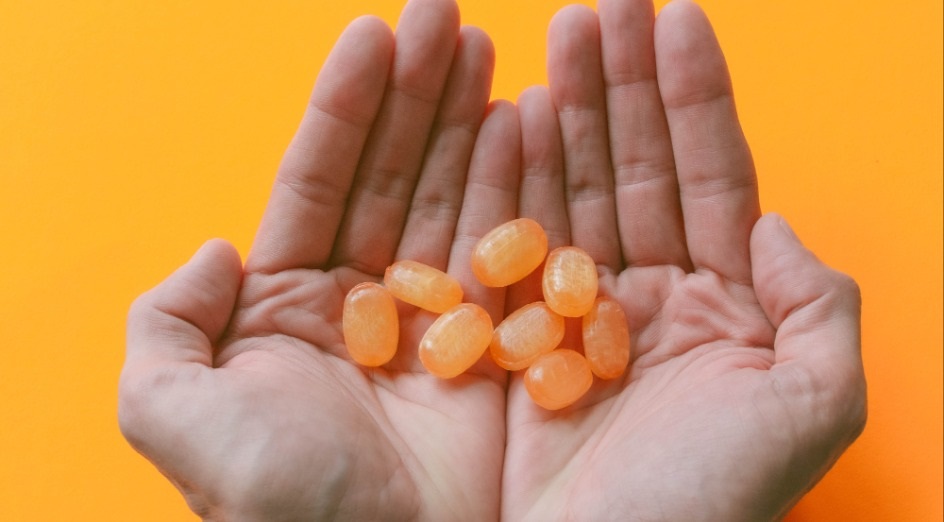
Daily low-dose oral interferon in the form of nose drops, lozenges or mouth spray could have a key role to play in protecting pandemic frontline workers by triggering the immune system to constantly run in defence mode, says UWA’s pioneering interferon researcher Associate Professor Manfred Beilharz.
Interferons are named for their ability to 'interfere' with viral replication by protecting cells from virus infections. Interferons do not directly kill viral or cancerous cells; they boost the immune system response and reduce the growth of cancer cells by regulating the action of several genes that control the secretion of numerous cellular proteins that affect growth.
Costing only a few cents per dose to produce, studies at UWA and in collaborating laboratories around the world have shown that administering a few drops of the signalling protein type 1 interferon in the mouth or nasal passages interacts with the lymphatic system and within an hour sets up an antiviral state that alters the expression of hundreds of genes.
The amount required is only 200 to 500 units of interferon, a fraction of the three million to six million units required when interferon is given in the currently medically-approved form of an intramuscular injection to treat disease.
With early research data just released by China reporting no cases of COVID-19 in 2,000 Hubei province nurses and doctors who took oral interferon nose drops three times a day, Professor Beilharz and his colleagues are now calling for oral interferon trials to be held locally in Australia and in those countries overwhelmed by the virus, including the United States, United Kingdom and Brazil.
UWA’s own WA Health Department-sponsored oral interferon trials carried out during the H1N1 Swine Flu pandemic had shown significant symptom severity reduction.
Professor Beilharz, a Marshall Centre associate from the UWA School of Biomedical Sciences, has pioneered international efforts to administer type 1 interferon as a preventative measure for viral upper respiratory infections, along with his collaborators in Germany (Dr Claus Martin), the US (Dr Joseph Cummins, Dr Ian Pith-Rowe) and France (Dr Michael Tovey).
“The current COVID-19 pandemic urgently requires prevention and treatment options, particularly for frontline medical staff and at-risk groups, and oral low-dose type 1 interferon is a readily available public health option with an extensive published literature,” Professor Beilharz said.
“It’s exciting that in the Hubei Province in China, where this pandemic originated, they have released details of a study where they treated over 2,000 frontline medical workers with oral interferon nose drops to try and protect them. There have been no reports of any contracting COVID-19, while in the controls – another 2,000 nurses and doctors working in the same province – 50 to 60 per cent were infected with COVID-19. That is a pretty clear demonstration of the prophylactic value of this.
“Myself and colleagues in the United States, Japan, Germany and England, we are all now pushing very hard to get across the message that there is evidence to say that oral interferon is a cheap and effective public health measure for respiratory viruses that should be considered for coronavirus prevention trials.
“We have put up a trial proposal to John Hopkins University in Baltimore in the US and my German colleagues are discussing trials with big pharmaceutical companies that make interferon in Germany.”
Dr Beilharz said the group would also like to see the recently announced Australian CoCo (Containing Coronavirus) trial, planning to use a high-dose injected type 1 interferon to try to ameliorate the effects of COVID-19, to also consider the inclusion of an oral low-dose arm. The trial is sponsored by BHP and will be conducted by the Telethon Kids Institute.
“Type 1 interferon is the natural and first antiviral defence mechanism of all mammals – it is the first warning sign of viral invasion,” he said.
“When you breathe in a virus, your nose runs for a bit and that is when your interferon is naturally produced – to warn the rest of your body that there is a virus on board. So when you spray a dose of manmade interferon into your mouth or take a lozenge or put drops into your nose, you are mimicking what happens naturally – warning the body to get ready for a viral invasion.
“We have had people in various clinical trials taking low-dose oral interferon twice daily for 12 months and we have had no significant side effects reported. Whereas when you administer interferon in a high-dose intramuscular injection to treat people, they can get severe flu-like symptoms and they can feel depressed."
Interferon was in a ready supply worldwide, currently medically-approved in the high-dose injection form for the treatment of a number of conditions including leukaemia and hepatitis C.
“Ideally, if we mass produced the oral low-dose of interferon and sent it off to places overwhelmed by the COVID-19 storm – US, Brazil and the UK – and supplied it to at-risk groups, that would give us a very clear indication of to what extent you will be ameliorating the problem,” Dr Beilharz said.
“But oral interferon is not just for coronavirus, it is for all sorts of viruses – it is our pan-viral protection system.
“Following the pandemic, it could be used during the winter cold and flu season to guard against influenza, rhinovirus and other coronaviruses to reduce the amount of hospitalisation and suffering that occurs.”
Media references
Simone Hewett
UWA Media and PR Manager
08 6488 3229 / 0432 637 716
